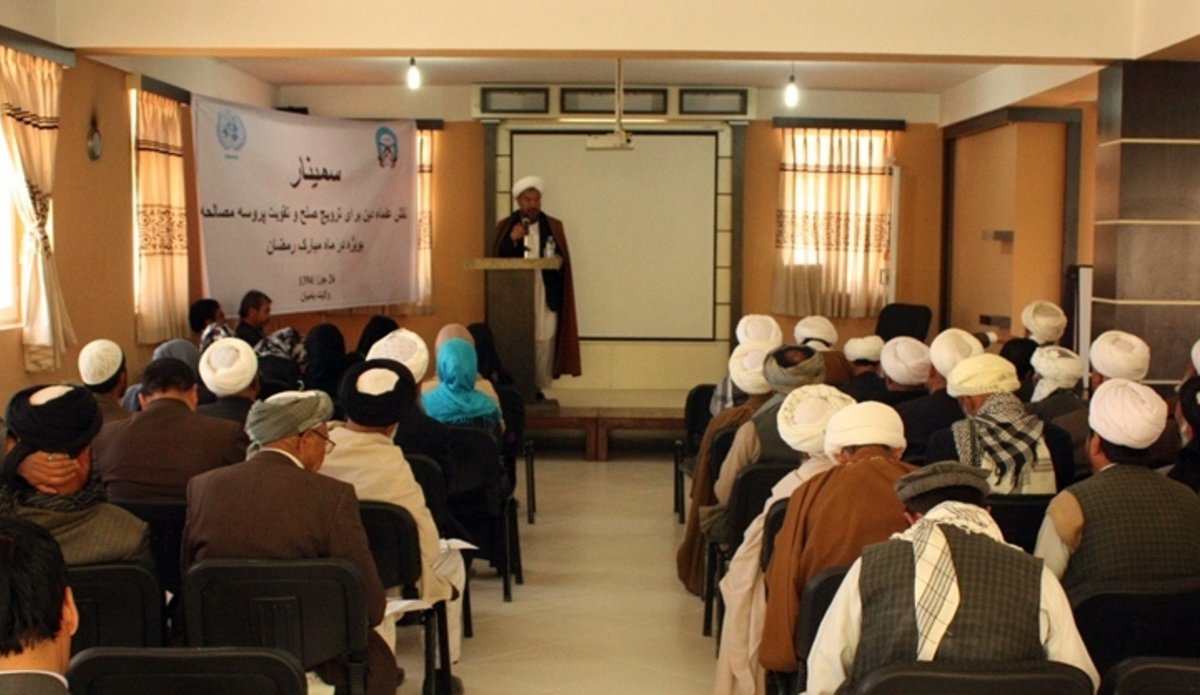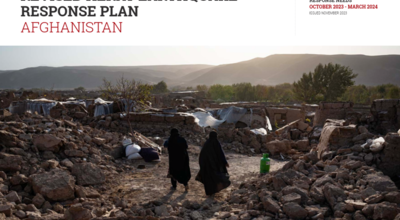Islamic leaders promote peace and reconciliation at UN-backed conference
BAMYAN - Religious scholars in the capital of one of Afghanistan’s central provinces urged their counterparts across the country to preach peace and reconciliation during Ramadan.
The Bamyan leaders made the call at a conference backed jointly by the regional office of the United Nations Assistance Mission in Afghanistan (UNAMA) and the Provincial Peace Committee.
“Religious scholars have the most important role of giving awareness to communities about the harms of conflict and benefits of peace,” Sadiq Aliyar, head of Bamyan’s Provincial Peace Committee, told more than 60 religious leaders attending the conference held at the beginning of Ramadan.
“We have brought religious leaders together at the time of Ramadan because they are more engaged with local communities during this holy month,” said Aliyar. “This is the best time for raising public awareness about peace.”
While Bamyan is known to be the most peaceful province of the country, UNAMA reported increased civilian casualties from ground engagements in every region of Afghanistan in 2014, with the majority taking place in the southern region.
UNAMA also reported that, in the first quarter of 2015, the number of civilians killed or injured was higher than at any previous recorded stage in the conflict. The UN continues working with all parties to abide with their national and international obligations to protect civilians.
As part of this work at the local level, UNAMA and its Afghan partners have been conducting meetings with religious leaders and others, bringing together government officials, civil society representatives, activists and other women and men of Afghanistan to participate in discussions set up to focus on ways to reduce civilian casualties and establish plans for peace and reconciliation.
At a recent event in the southern city of Kandahar, conference participants identified ways to give voice to the views of ordinary Afghans on peace and reconciliation. The Kandahar meeting took place as part of the UNAMA-backed ‘People’s Dialogue for Peace’ events, in which more than 6,000 Afghan citizens – men, women and young people – have taken part in all 34 provinces.
The findings of the earlier phase of the People’s Dialogue were published in the form of a summary report in June 2014, entitled “Afghan People’s Dialogue on Peace: Building the Foundations for an Inclusive Peace Process.” A national conference held on 15 January 2015 in Kabul a chance for Afghan leaders to develop national advocacy strategies as part of the province-level plans.
UNAMA is mandated to support the Afghan Government and relevant international and local non-governmental organizations to assist in the full implementation of the fundamental freedoms and human rights provisions of the Afghan Constitution and international treaties to which Afghanistan is a State party.
 UN
UN








